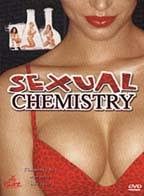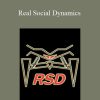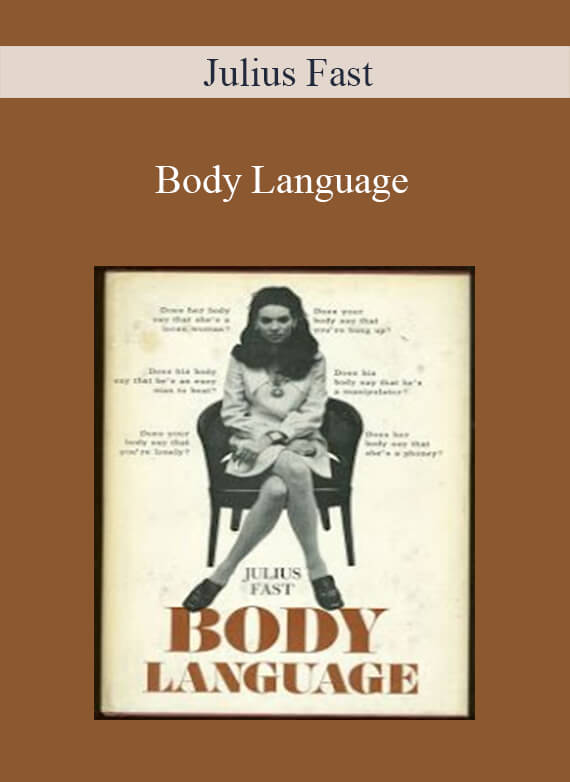Julius Fast – Sexual Chemistry
$26.00 Original price was: $26.00.$12.00Current price is: $12.00.
Digital Download: You will receive a download link via your order email
Should you have any questions, please contact us: support@imclibrary.com
 Julius Fast – Sexual Chemistry
Julius Fast – Sexual Chemistry
Research psychologists in the United States and Germany have established that there is a sound biological basis for the phenomenon of sexual chemistry. When we are sexually aroused, or when we meet someone who interests us intensely, when we experience that moment of understanding, our sympathetic nervous system begins to create the hormone norepinephrine in our nerve endings and in our adrenal glands. Dr. Michael R. Liebowitz, assistant professor of clini – cal psychiatry at the College of Physicians and Surgeons at Columbia University, has done a great deal of research into the biological mechanisms that involve sexual chemistry. “Love depends on powerful perturbations of our normal brain chemicals,” he has stated, and he points out that there are more than thirty neurotransmit- ters that bridge the synapses in our nerve cells.
Two of these, norepinephrine and dopamine, affect the pleasure center in the brain and are directly responsible for what we feel when we fall in love. Our breath comes faster, and there is a feeling of euphoria, a rapid pulse, a compulsion to talk, and a type of comfortable aggression that allows us to make advances we would ordinarily be too shy to consider. We feel excited, happy, and full of anticipation. Sexual chemistry has occurred!
The pleasure center, where all of this takes place, was discovered by Dr. Jose Delgado, a neurophysiologist at Yale University, in his research with rhesus monkeys. Many years ago he demonstrated to one of the authors his unusual findings. He had drilled through the skull of a monkey and inserted a tiny probe into the area of the brain’s limbic system known as the pleasure center. He then rigged up a device that allowed the monkey to stimulate this pleasure center, the area responsible for emotional satisfaction. – Julius Fast
About Author:
Julius Fast (April 17, 1919 – December 16, 2008) was an American author of both fiction and non-fiction. In 1946 he was the first recipient of the Edgar Award given by the Mystery Writers of America for the best first novel of 1945.
Fast was born in Manhattan, the younger brother of novelist Howard Fast. Majoring in pre-med, he earned a bachelor’s degree at New York University. He served in the United States Army Medical Corps for three years, serving in a blood lab in Boston. He edited Out of This World, a 1944 collection of science fiction stories while he was still in the Army.
He married author Barbara Sher in 1946. They co-wrote the 1979 book Talking Between the Lines: How We Mean More Than We Say. Their three children are: Jennie Gelfand, Dr. Melissa Morgan and Timothy Fast. In 1997, Fast and his son co-authored The Legal Atlas of the United States.
His first novel, Watchful at Night, written in 1945 while he was still serving in the Army, was given the first award presented at the inaugural Edgar Allan Poe Award in 1946 for Best First Novel by an American Author in 1945. Reviewer Isaac Anderson of The New York Times described his 1947 novel Walk in Shadow as a “profoundly moving novel of crime and punishment, telling the story of a once-honest man who becomes a murderer.
Fast wrote and edited for a number of medical magazines, where his time employed at a podiatry journal provided the background he needed to write the 1970 book You and Your Feet. Other non-fiction works reflected a broad range of subjects, including the 1968 book The Beatles: The Real Story, The New Sexual Fulfillment published in 1972 and his 1979 book Weather Language. His 1988 semiautobiographical novel What Should We Do About Davey? described a gawky teen at a Catskill Mountains summer camp for boys.
He wrote a number of books on request for publishers on subjects of current interest, including writing What You Should Know About Human Sexual Response in months after the 1966 publication of Human Sexual Response by Masters and Johnson.
Delivery Method
Be the first to review “Julius Fast – Sexual Chemistry” Cancel reply
Related Products
Seduction & Love






Reviews
There are no reviews yet.